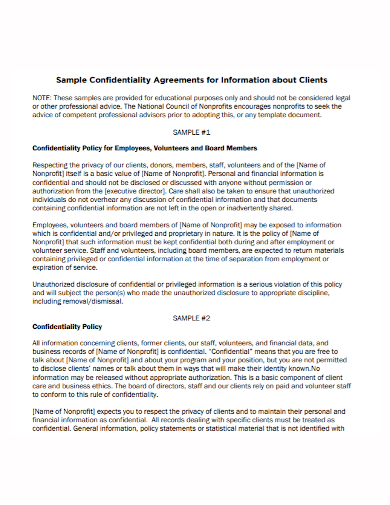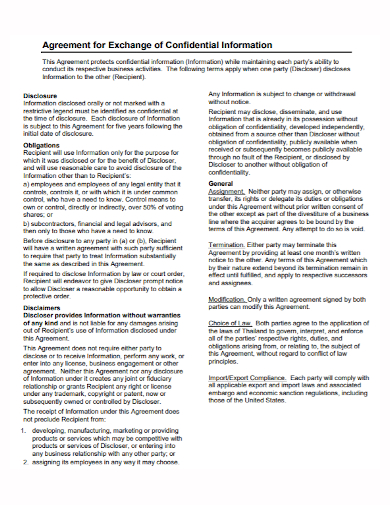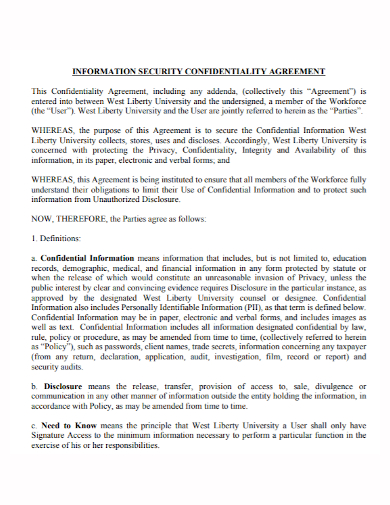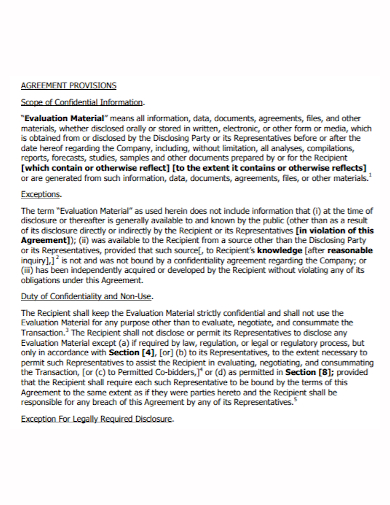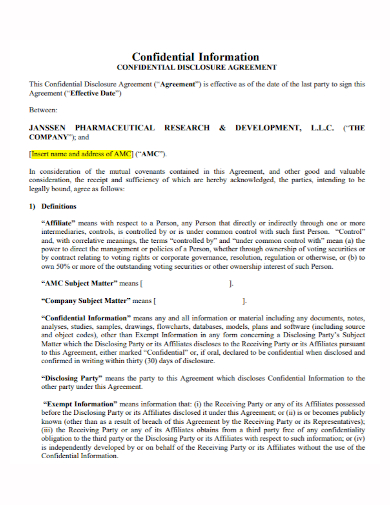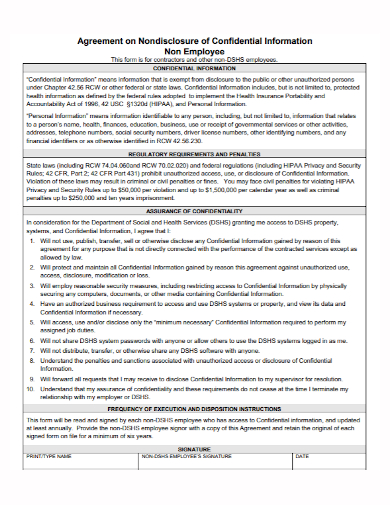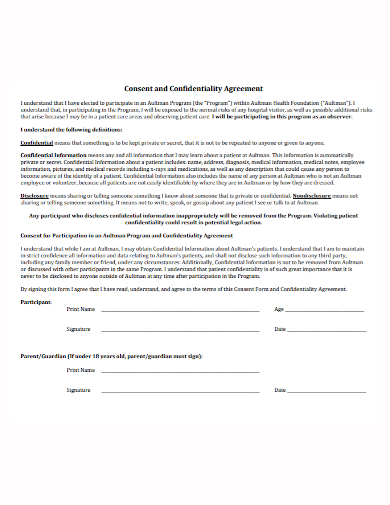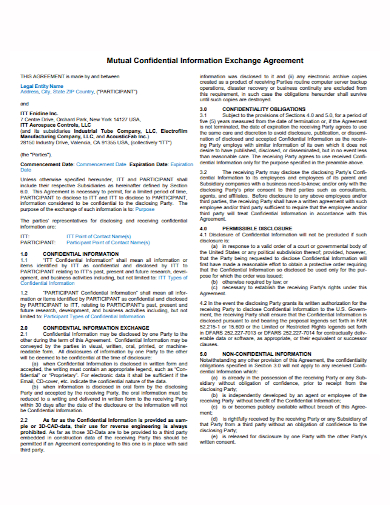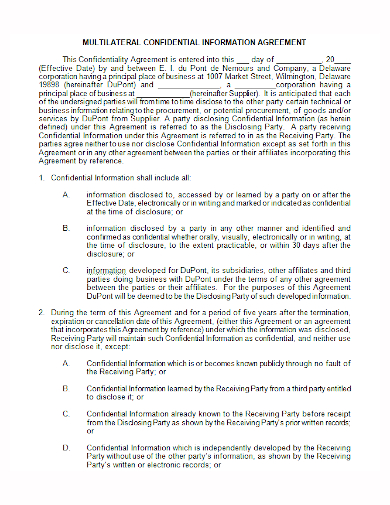Do you ever wonder why some companies who make and produce products, or keep certain information, or deal with sensitive matters usually keep their business from being out in the public? It’s all because all the people involved in those companies are sworn to secrecy to protect confidential information such as trade secrets, secret formulas, client’s information, trademarks, copyright, patents, etc. Keeping this information safe and sealed helps protect the privacy of these individuals and avoid risks of security threats. After all, these types of information are highly sensitive because of their powerful information that could get violated if it’s not protected properly. A confidential information agreement is important to ensure the safety of this information will be always protected by asking people to be more discreet and responsible over the privilege of knowing these types of information from getting public. Read the article to know how to make a confidential information agreement.
10+ Confidential Information Agreement Samples
1. Confidential Information Agreement Template
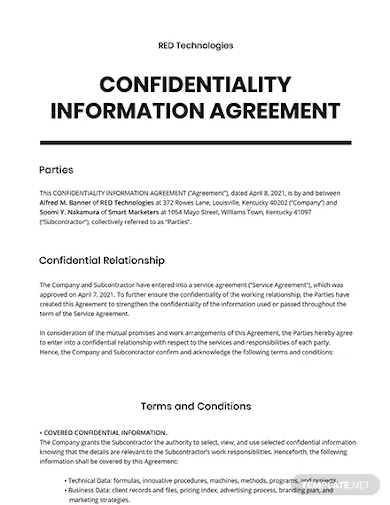
2. Confidential Information Exchange Agreement Template
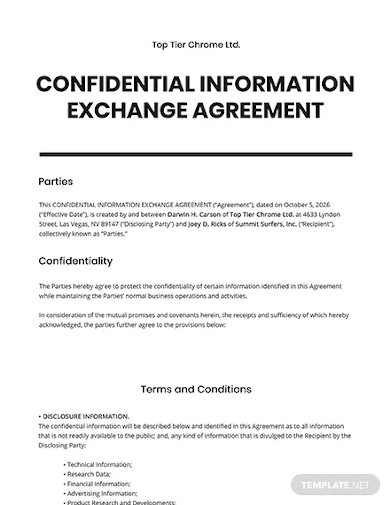
3. Confidential Client Information Agreement
4. Agreement for Exchange of Confidential Information
5. Information Security Confidential Agreement
6. Confidential Scope of Information Agreement
7. Confidential Information Disclosure Agreement
8. Confidential Information Non-Disclosure Agreement
9. Consent Confidential Information Agreement
10. Mutual Confidential Information Exchange Agreement
11. Multilateral Confidential Information Agreement
What is a Confidential Agreement?
A confidentiality agreement, or also called secrecy or nondisclosure agreement, is a contract made by two or more parties in which they agree that certain types of information or details they pass from each other will remain confidential between them. It is a protection from leaking sensitive information. Since these types of information are not on public record, they have the right to intellectual property. Some examples of confidential information include secret formulas and trade secrets.
Details to Include in a Confidential Information Agreement
1. Date and Names of Parties Involved
The first part of the agreement, at the top part of the agreement, is the title of the agreement. The first paragraph must describe the two parties such as their names and their identification. This is essential to avoid any misunderstanding about who is signing the agreement.
2. Reason and Details of the Agreement
State the reason why the confidential agreement is made in the first place. Identify then what property or information of the company or organization you want to include in the agreement and what information you want to exclude. This is an essential part of the agreement because it states what property you have that you want to be protected. Furthermore, you need to state what the other party must agree to. Stating what the other party is agreeing to is important not to miss it so make sure it is stated clearly in this section. Some examples of confidential information included in the agreement are:
- Information about customers
- Intellectual property such as patents, copyrights, and trademarks
- Marketing and sales information
- Product information
- Computer codes, applications, websites, and computer technology
- Accounting and tax information
3. Breach of Contract Terms
There’s always a possibility that the other party might breach the contract by revealing confidential information, you need to include in your agreement your terms describing what consequences the other party faces when they breach the contract. Usually, the consequences that could happen can result in legal action. One example is an injunction, where a court orders the party who breached the contract to stop revealing any more secrets.
4. Date of When the Agreement Ends
Conclude the agreement by stating when the agreement will end and what notice should be given to the other party about the agreement termination. In most termination of the agreement, the other party will be asked not to use the confidential information for a certain period whether when the agreement is taking place or even for a specific time after the agreement is terminated.
FAQs
What are the three different types of confidential information?
The three different types of confidential information are contracts and commercial documents, confidential employee information, and office plans and internal documentation.
What happens if you violate a confidentiality agreement?
If you ever recklessly violated a confidentiality agreement, the other party can pursue damages from a breach of contract, or sue for misappropriation of trade secrets. Other legal repercussions you might face are copyright infringement, breach of fiduciary duty, trespass, and patent infringement.
Once you’re done drafting the agreement, make sure to review it and revise any grammatical or spelling errors or inaccurate information in it. Discuss the agreement with the party you’re sharing confidential information with and reach a mutual agreement with its contents before signing it. To help you get started making the confidential information contract, download our free sample templates above to use as your reference!
Related Posts
Sample Business Agreement between Two Parties
FREE 10+ Trial Agreement Samples In MS Word | Google Docs | Apple Pages | PDF
FREE 9+ Shop Rental Agreement Samples [ Commercial, Lease, Tenancy ]
FREE 10+ Charter Agreement Samples In MS Word | Google Docs | Apple Pages | PDF
FREE 10+ Mentoring Agreement Samples In MS Word | Apple Pages | PDF
FREE 10+ Partner Agreement Samples In MS Word | Google Docs | Apple Pages | PDF
FREE 10+ Individual Agreement Samples In MS Word | Google Docs | Apple Pages | PDF
FREE 10+ Strategic Agreement Samples In MS Word | Google Docs | Apple Pages | PDF
FREE 10+ Equity Agreement Samples In MS Word | Google Docs | Apple Pages | PDF
FREE 10+ Producer Agreement Samples in MS Word | Apple Pages | PDF
FREE 10+ Grant Agreement Samples In MS Word | Apple Pages | PDF
FREE 8+ Meeting Agreement Samples in MS Word | Google Docs | Apple Pages | PDF
FREE 10+ Community Agreement Samples In MS Word | Google Docs | PDF
FREE 8+ Real Estate Option Agreement Samples in MS Word | PDF
FREE 10+ Call Option Agreement Samples In MS Word | PDF

